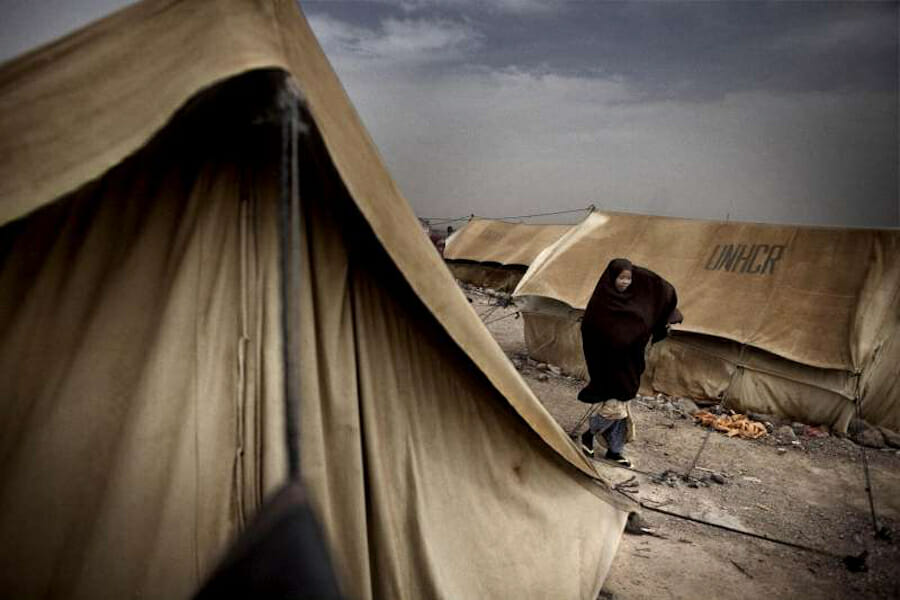
Yemen’s Descent: Is the Arab Spring a Failure of Ideas?
Yemen’s National Dialogue Conference (NDC) is an agreement between the Gulf Cooperation Council and the United Nations to end the bloodshed, which resulted from Yemen’s Arab Spring, and develop the democratic underpinnings necessary to ensure national stability. While initially a moment to celebrate, Yemen has devolved into chaos in many parts of the country. Nine months have passed since the NDC’s inception and many fundamental matters remain unresolved. Against a backdrop of violence and the pressure of pending elections scheduled for February 2014, it has yet to construct the framework from which a new constitution will be drafted. Conference delegates have initially agreed to the principle of transforming the republic into a federal state; however, past animosities continue to undermine progress.
Grievances of discriminatory policies have been leveled against Sana’a since unification, in 1990. Unresolved issues eventually sparked the 1994 civil war; the North’s victory continued to stir conflict as southerners struggled to retain their jobs and land rights. Due to the animosity created during this period of unease, the Arab Spring was able to garner widespread mobilization. These underlying disagreements account for the failure of the National Dialogue Conference to meet its objectives. In spite of the accomplishments achieved by the Conference, southerners still want the country to be divided along its pre-unification, north-south border; an objective that was discussed and rejected by the NDC this last October.
The Arab Spring’s success in ousting President Ali Abdullah Saleh paved the way for the NDCs formation and it is important that its objectives succeed, for the nation’s future stability. With the process stalled and the political transition seemingly in jeopardy, al-Qaeda has taken advantage of this opportunity to step up its attacks across the country.
In response, Sana’a has escalated its presence throughout the country’s northern borderlands and southern provinces. Saboteurs in and around the capital have destroyed energy infrastructure and the power outages are creating a dire situation for the Yemeni people.
Violence erupting around the country is representative of all political, tribal, and paramilitary factions attempting to gain support for their agendas. The government is trying to entice voters to support its initiatives by decrying US drone strikes within its borders – though little is expected to be accomplished. Moreover, al-Qaeda recently apologized for a hospital strike, blaming the attack on rogue operatives while local tribal leaders are unifying under a single voice to protect their people.
The most recent episodes of violence stem from a reaction to the death of a local tribal leader, Sa’ad Bin Habrish, who was killed, with his bodyguards, by army forces at a checkpoint. Local tribal leaders issued demands to investigate the killing, and, if these demands remained unmet, violence would be directed against the state.
It seemed that minimal effort was put forth in resolving the matter or quelling the call for violence. With the violence erupting last weekend throughout the southern provinces, the government had no choice but to act – declaring, today, that a ‘just solution’ has been reached with the southern tribal leaders, which provided ‘some autonomy’ in the hope that this will quell secessionist demands.
With the Yemeni government stumbling its way through the democratic process, it needs to implement a plan that will deter violence as a means to focus more on national cooperation. Al-Qaeda had become resurgent in many parts of the country and Sanaa’s lack of control of the regions around the capital has only bolstered the people’s support for tribal leaders. Security is an important matter for the Yemeni people and these micro-wars spread easily, through emigration, terrorism, and empathy.
Long strides need to be made quickly to bring about a stable country. Politicians have been blamed for corruption and nepotism, while the country’s unemployment rate hovers around 35%, and gridlock means little improvement has been made. Unrelenting violence and unemployment are not the only problems faced by the NDC and the development of the new constitution – Sana’a needs revenue in order to ensure stability.
A majority – up to three-fourths – of the government’s revenue stems from oil exports. The World Bank estimates that the country will have depleted its two largest oil basins within the next ten years. Moreover, a similar report from the World Bank states that Yemen is expected to be the first country in modern times to run out of water by 2015.
The international community is not prepared to handle a situation as dire as the one unfolding in Yemen. If assessments are correct, there is little time to get institutions in place, and there is little to no margin for error. National institutions and programs overseen by international organizations may no longer be enough to deter collapse, which is the reason national security analysts have labeled Yemen the counter-terrorism priority on a par with Southeast Asia.

